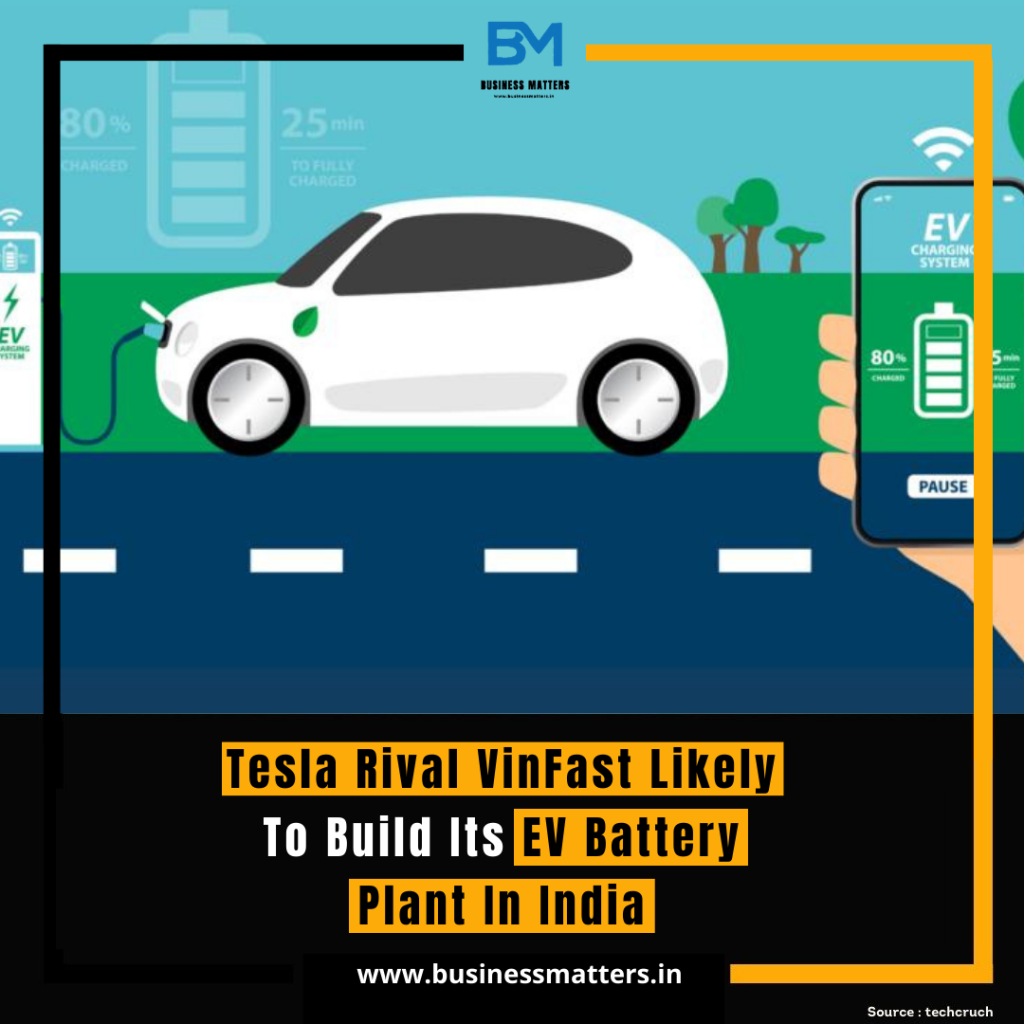In the rapidly evolving landscape of electric vehicles (EVs), Vietnamese automaker VinFast is making waves with its plans to potentially establish an EV battery plant in India. As Tesla’s competition heats up globally, this move signals a strategic step toward expanding VinFast’s presence and contributing to the growing EV market in India.
VinFast, a subsidiary of the Vingroup conglomerate, has been gaining attention for its ambitious goals in the electric vehicle sector. The company, founded in 2017, has rapidly progressed from being a newcomer to a significant player in the automotive industry. With a strong focus on innovation, sustainability, and cutting-edge technology, VinFast has positioned itself as a potential rival to established EV giants.
The prospect of VinFast establishing an EV battery plant in India holds considerable significance for several reasons. India, being one of the largest automobile markets globally, has been witnessing a surge in demand for electric vehicles. With the Indian government’s push for cleaner and sustainable transportation solutions, the EV sector has seen increased attention and investments.
VinFast’s potential entry into the Indian market aligns with the country’s efforts to reduce its carbon footprint and transition toward electric mobility. The establishment of an EV battery plant in India by VinFast would not only contribute to the local economy but also accelerate the adoption of electric vehicles in the region.
Building a battery plant in India allows VinFast to capitalize on the country’s skilled workforce and robust manufacturing ecosystem. It can potentially lead to job creation, technology transfer, and the development of a localized supply chain for EV components. Moreover, producing batteries locally can help reduce costs associated with import duties and logistics, making VinFast’s electric vehicles more competitive in the Indian market.
VinFast’s move is also indicative of the global shift in the automotive industry towards sustainable practices and green technologies. With a dedicated EV battery plant, the company aims to secure a consistent and efficient supply of batteries for its electric vehicles. This vertical integration strategy can enhance VinFast’s control over the production process, ensuring quality and reliability in its electric offerings.
The competition in the electric vehicle market has been intensifying, with established players like Tesla expanding their footprint globally. VinFast’s potential entry into India aligns with the broader trend of automakers recognizing the market potential in the country and investing in local manufacturing capabilities.
However, it’s essential to note that establishing an EV battery plant involves navigating various challenges, including regulatory approvals, infrastructure development, and market dynamics. VinFast’s success in this endeavor would depend on its ability to forge partnerships, comply with local regulations, and adapt to the unique characteristics of the Indian market.
In conclusion, VinFast’s consideration of building an EV battery plant in India reflects the dynamic nature of the electric vehicle industry and the strategic importance of the Indian market. As the automotive landscape undergoes a transformative shift towards sustainability, VinFast’s potential entry could contribute significantly to India’s electric mobility journey and foster healthy competition in the rapidly growing EV sector.


